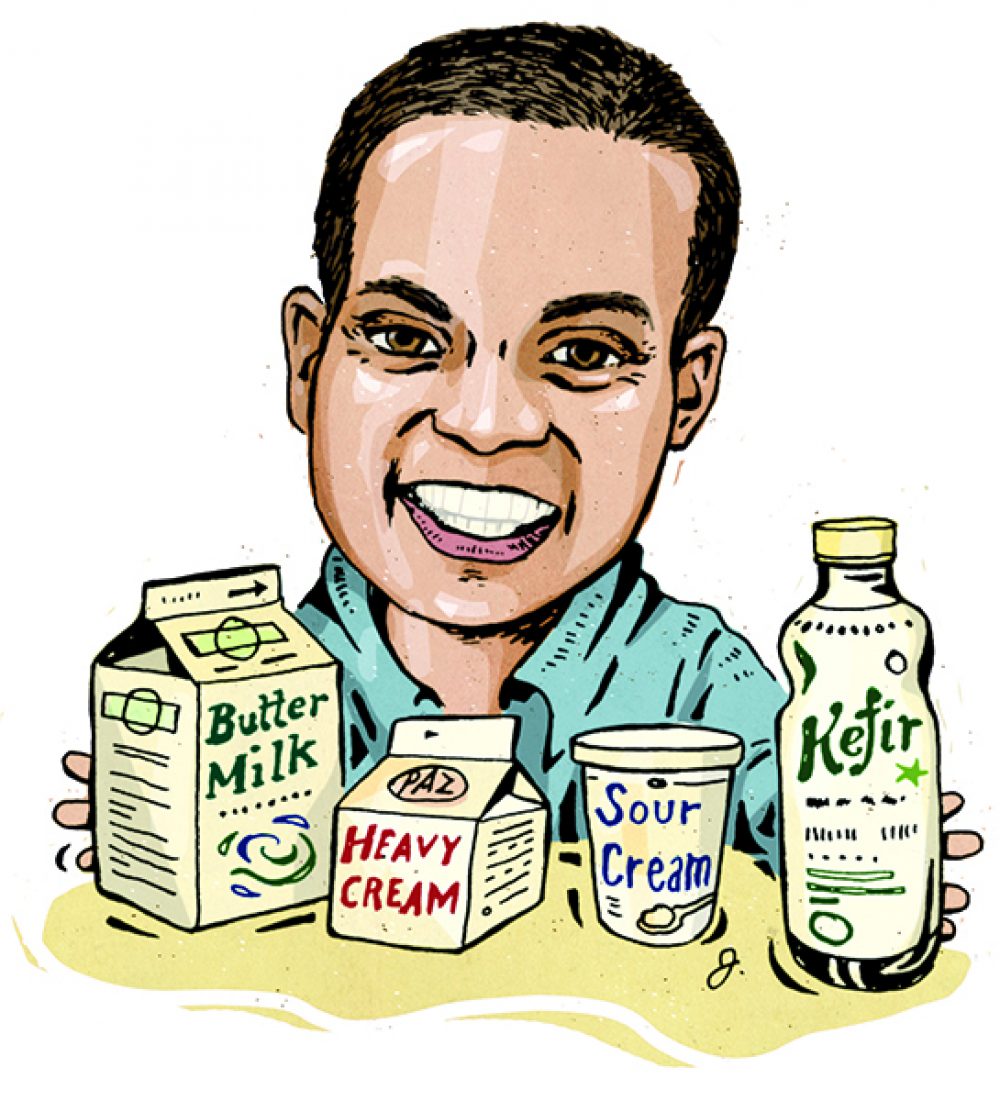Nik Sharma, author of the recently released cookbook “Season,” grew up in Mumbai before studying biochemistry in Cincinnati and eventually landing in San Francisco. It was there that his career in food took off with his blog, “A Brown Table,” and column in the San Francisco Chronicle. Swapping the lab for the kitchen, he experiments with Indian spices and techniques in all manner of dishes, from Apple Masala Chai Cake to popcorn chicken flavored with curry leaves.
When Sharma spoke on Milk Street Radio, he described his childhood in Mumbai, growing up with a mom from coastal Goa and a dad from a conservative Hindu family in the north. (That meant eating both seafood and vegetarian dishes.) He described how he makes ghee at home, the secret to better marinades and why his grandmother stopped eating garlic and onions. See below for excerpts from the full interview, and listen to the show here on Milk Street Radio.
On walking into an American supermarket for the first time
It was fascinating because I had never been to a supermarket before, and so it was actually kind of exciting because you'd walk in and everything's neatly arranged and organized and then you have special deals, which were something new to me. I grew up bargaining, so I know how to bargain for food with vendors, but this was really interesting. There's a fixed price or you get a discount if you're a member—that was something new to me. And then what was also fascinating was just to see meat and seafood predominantly being sold in cuts directly. I was always used to going to the butcher or the fishmonger and having to clean it or cut it the way my parents wanted it.
On the secret to good vindaloo
You have to wait a week for the flavors to kind of mellow. My aunt was visiting from New Zealand recently and taught me how to make vindaloo. We did a pork vindaloo dish and she said, “Don’t eat it the day you make it. Leave it in a glass bowl, cover it and open it after a week.” I didn't listen—I tasted it everyday. But the flavors do get much more mellow and much more pleasant after seven days.
On marinades that actually work
If you've noticed on Tandoori chicken, they make deep cuts—about an inch gash into the meat. That's for the marinade to kind of settle in there so when you eat it, you've got the meat flavored. In the West it's a little different. You can't really keep your marinades that long, especially with beef because a lot of marinades are also highly acidic and as the proteins sit with the acid, they'll start to denature. Sometimes the meat gets a very weird, crumbly texture if it's marinated for too long, so it really depends on where you are in the world with marinades.
On making ghee at home
I start with sticks of unsalted butter and I slowly melt them on the stove and start skimming the milk solids that come off. Then I wait for all the water to evaporate—so, once the crackling noise has stopped. I remove the liquid from the stove, filter it and store it in bottles.
Why his grandmother gave up eating onions and garlic
When my grandfather passed away, my dad’s mother had to give up eating onions and garlic because it was considered an aphrodisiac and would induce impure thoughts in the mind. Onions and garlic are considered heating, so they’re considered an aphrodisiac, and they would use asafoetida powder to create those flavors in those dishes instead.
This interview has been edited for clarity.




